第55章 PROPOSITIONS(16)
Proof--Pleasure and pain, and consequently the emotions compounded thereof, or derived therefrom, are passions, or passive states (III. xi. note); now we are necessarily passive (III. i.), in so far as we have inadequate ideas; and only in so far as we have such ideas are we passive (III. iii.); that is, we are only necessarily passive (II. xl. note), in so far as we conceive, or (II. xvii. and note) in so far as we are affected by an emotion, which involves the nature of our own body, and the nature of an external body. Wherefore the nature of every passive state must necessarily be so explained, that the nature of the object whereby we are affected be expressed. Namely, the pleasure, which arises from, say, the object A, involves the nature of that object A, and the pleasure, which arises from the object B, involves the nature of the object B; different, inasmuch as the causes whence they arise are by nature different. So again the emotion of pain, which arises from one object, is by nature different from the pain arising from another object, and, similarly, in the case of love, hatred, hope, fear, vacillation, &c.
Thus, there are necessarily as many kinds of pleasure, pain, love, hatred, &c., as there are kinds of objects whereby we are affected. Now desire is each man's essence or nature, in so far as it is conceived as determined to a particular action by any given modification of itself (III. ix. note); therefore, according as a man is affected through external causes by this or that kind of pleasure, pain, love, hatred, &c., in other words, according as his nature is disposed in this or that manner, so will his desire be of one kind or another, and the nature of one desire must necessarily differ from the nature of another desire, as widely as the emotions differ, wherefrom each desire arose. Thus there are as many kinds of desire, as there are kinds of pleasure, pain, love, &c., consequently (by what has been shown) there are as many kinds of desire, as there are kinds of objects whereby we are affected. Q.E.D.
*****Note--Among the kinds of emotions, which, by the last proposition, must be very numerous, the chief are "luxury,"
"drunkenness," "lust," "avarice," and "ambition," being merely species of love or desire, displaying the nature of those emotions in a manner varying according to the object, with which they are concerned. For by luxury, drunkenness, lust, avarice, ambition, &c., we simply mean the immoderate love of feasting, drinking, venery, riches, and fame. Furthermore, these emotions, in so far as we distinguish them from others merely by the objects wherewith they are concerned, have no contraries. For "temperance," "sobriety," and "chastity," which we are wont to oppose to luxury, drunkenness, and lust, are not emotions or passive states, but indicate a power of the mind which moderates the last-named emotions. However, I cannot here explain the remaining kinds of emotions (seeing that they are as numerous as the kinds of objects), nor, if I could, would it be necessary. It is sufficient for our purpose, namely, to determine the strength of the emotions, and the mind's power over them, to have a general definition of each emotion. It is sufficient, I repeat, to understand the general properties of the emotions and the mind, to enable us to determine the quality and extent of the mind's power in moderating and checking the emotions. Thus, though there is a great difference between various emotions of love, hatred, or desire, for instance between love felt towards children, and love felt towards a wife, there is no need for us to take cognizance of such differences, or to track out further the nature and origin of the emotions.
LVII. Any emotion of a given individual differs from the emotion of another individual, only in so far as the essence of the one individual differs from the essence of the other.
Proof--This proposition is evident from Ax. i. (which see after Lemma iii. Prop. xiii., Part II.). Nevertheless, we will prove it from the nature of the three primary emotions.
All emotions are attributable to desire, pleasure, or pain, as their definitions above given show. But desire is each man's nature or essence (III. ix. note); therefore desire in one individual differs from desire in another individual, only in so far as the nature or essence of the one differs from the nature or essence of the other. Again, pleasure and pain are passive states or passions, whereby every man's power or endeavour to persist in his being is increased or diminished, helped or hindered (III. xi. and note). But by the endeavour to persist in its being, in so far as it is attributable to mind and body in conjunction, we mean appetite and desire (III. ix. note); therefore pleasure and pain are identical with desire or appetite, in so far as by external causes they are increased or diminished, helped or hindered, in other words, they are every man's nature; wherefore the pleasure and pain felt by one man differ from the pleasure and pain felt by another man, only in so far as the nature or essence of the one man differs from the essence of the other; consequently, any emotion of one individual only differs, &c.
Q.E.D.
*****Note--Hence it follows, that the emotions of the animals which are called irrational (for after learning the origin of mind we cannot doubt that brutes feel) only differ from man's emotions, to the extent that brute nature differs from human nature. Horse and man are alike carried away by the desire of procreation; but the desire of the former is equine, the desire of the latter is human.